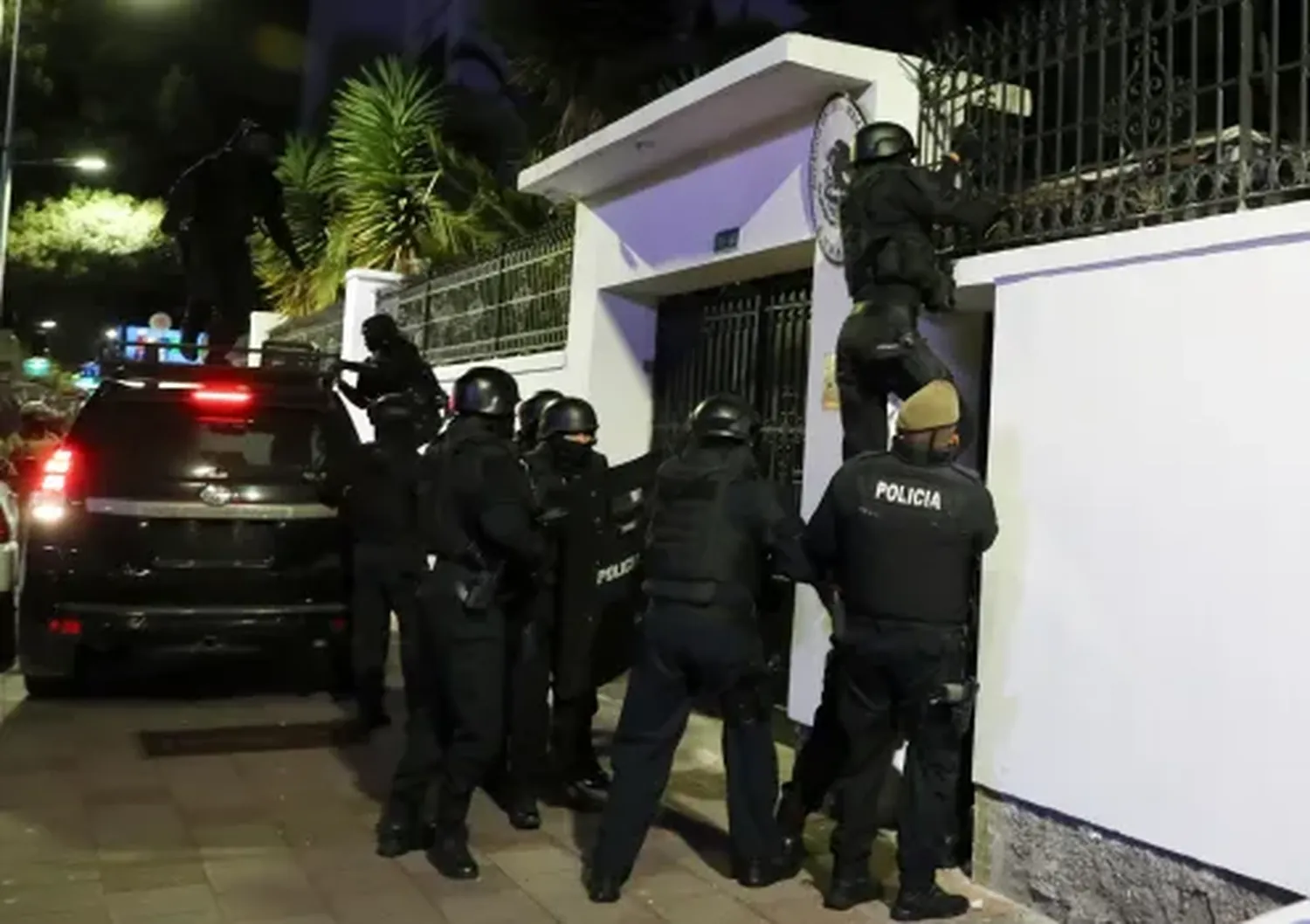International
Mexico Breaks Diplomatic Ties with Ecuardor over Embassy Raid
Mexico has severed its diplomatic ties with Ecuador following a controversial police raid on its embassy in Quito. The incident, which has sparked widespread condemnation and raised questions about the sanctity of diplomatic premises, marks a significant low point in the relationship between the two Latin American countries.
The raid occurred late Friday when Ecuadorian police forcibly entered the Mexican embassy to arrest former Ecuadorian Vice President Jorge Glas, who had been granted political asylum by Mexico. Glas, a figure mired in corruption charges, had sought refuge in the embassy since December, claiming political persecution. The decision to grant asylum came just hours before the raid, further complicating the diplomatic standoff.
Mexican President Andrés Manuel López Obrador, in a swift response to the raid, announced the breaking of diplomatic relations with Ecuador, labeling the police action as "a flagrant violation of international law and the sovereignty of Mexico." The Mexican government has expressed its intention to lodge a complaint with the International Court of Justice, denouncing Ecuador's actions as a breach of the Vienna Convention on Diplomatic Relations, which safeguards the inviolability of diplomatic premises.
The raid has not only strained Mexico-Ecuador relations but also drawn sharp criticism from across the Latin American region and beyond. Several countries, including Brazil, Colombia, Argentina, and Uruguay, have condemned Ecuador's actions, emphasizing the importance of adhering to international norms and the Vienna Convention. The Organization of American States (OAS) has also voiced its concern, reminding its members of their obligations under international law.
Ecuador's presidency defended the raid, stating that "Ecuador is a sovereign nation and we are not going to allow any criminal to stay free." This statement refers to the multiple corruption charges against Glas, including bribery and misuse of public resources, which have led to his conviction. However, Mexico and other international observers argue that the manner of his arrest, by violating the sanctity of a diplomatic mission, sets a dangerous precedent and undermines the principles of diplomatic immunity and asylum.
The incident has also sparked a broader debate about the use of diplomatic premises for asylum and the balance between respecting international law and pursuing domestic legal actions against individuals accused of serious crimes. While Ecuador contends that the asylum offer to Glas was illegal under international law, critics argue that the raid could endanger diplomatic missions worldwide by setting a precedent for similar actions.
The fallout from the raid extends beyond the immediate diplomatic crisis between Mexico and Ecuador. It raises questions about the future of diplomatic relations in the region, the respect for international treaties, and the potential impact on individuals seeking asylum in embassies to escape political persecution. As Mexico prepares to take its case to the International Court of Justice, the international community will be watching closely to see how this unprecedented situation unfolds and what it means for the sanctity of diplomatic missions and the rule of law on the global stage.
In the meantime, the Mexican embassy in Quito remains under heavy police guard, a stark symbol of the deep rift that has emerged between the two nations. As leaders and diplomats seek a resolution to this crisis, the principles of international law and the protection of diplomatic missions hang in the balance, challenging the international community to reaffirm its commitment to these foundational norms.

